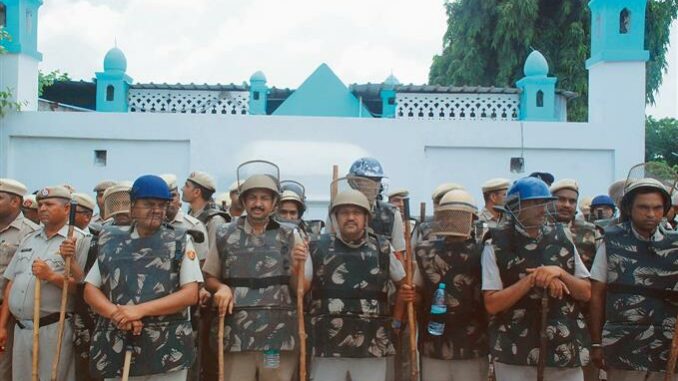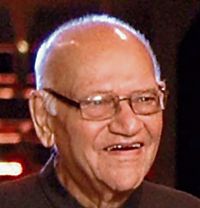
The rioting in Nuh and Gurugram reflects badly on the state government and the police force
“The rioting in Nuh and Gurugram in Haryana reflects badly on the state government and its police force. Why has Monu Manesar, a notorious Bajrang Dal activist accused of kidnapping two Muslim cattle traders from Rajasthan in February and lynching them in Haryana, been allowed to remain at large? Instead, Monu and his associate, Bittu Bajrangi, circulated their video clips on social media, urging Hindus to join a religious procession organized by the VHP through the streets of Nuh. The BJP seems to have devised a novel method of dealing with the problem of communal strife. It allows the riots to occur and then selectively enforces bulldozer justice to teach the victims a lesson.”

One of the first lessons I learnt as a young police officer was that communal clashes were to be put down with a heavy hand. If you needed to open fire, you were free to do so in case no other option was available. Of course, the rule of minimum force was always to be kept in mind.
It’s not as if the police were not aware of Monu Manesar’s deep hatred of the Muslims and his intentions.
The Chief Minister, whoever happened to be in that position at the time of the clash, was kept informed of the cause of the riot, the action taken by the police and the steps that were needed to be taken to prevent further mayhem. The compulsion of arresting or detaining the instigators on both sides of the divide was paramount on all such occasions. Every police officer was adept at dealing with communal friction and riots. The governments I served in Maharashtra never interfered in the process. On the contrary, they would pull you up if you failed.
The first time I felt that the police had neglected their duty and responsibility to control a communal conflagration was in Gujarat in 2002. Since I had been chosen to restore normalcy in that state in 1985, I knew the officers there and they knew how I had gone about my task. So, when the 2002 riots happened, I decided to go to Ahmedabad to ascertain why the police leadership had failed.
That was the first recorded instance that pitted the political executive’s interests against the standard operating procedures laid down in departmental orders. Detaining mischief-makers on both sides of the communal divide and using all the force required to put down the riots — all this just did not happen.
The rioting in Nuh and Gurugram in Haryana reflects badly on the state government and its police force. Why has Monu Manesar, a notorious Bajrang Dal activist accused of kidnapping two Muslim cattle traders from Rajasthan in February and lynching them in Haryana, been allowed to remain at large? Instead, Monu and his associate, Bittu Bajrangi, circulated their video clips on social media, urging Hindus to join a religious procession organized by the VHP through the streets of Nuh. The BJP seems to have devised a novel method of dealing with the problem of communal strife. It allows the riots to occur and then selectively enforces bulldozer justice to teach the victims a lesson.
It is not as if the police were not aware of Monu’s deep hatred of the Muslims and his intentions. Monu and his colleagues were cow vigilantes, who had been allegedly empowered by the state government to assist the police in enforcing cow protection laws. Because of the semi-official status accorded to him and his men, all owing allegiance to the Bajrang Dal and the VHP, strong-arm units of the Sangh Parivar, the police were intimidated into permitting this rabble-rouser to operate almost freely.
The ploy of organizing religious processions through Muslim localities has been used in the past also to provoke Muslims. In my ancestral state of Goa, from where communal clashes had never been reported in colonial times right up to the days of the BJP government of Manohar Parrikar, an attempt to provoke Muslims by organizing a religious procession of Hindus through their locality near Vasco was tried sometime after Pramod Sawant was installed as the CM. Mercifully, the native Goan Muslims, who account for just 2 per cent of the state’s population, were not provoked but only amazed! They had never seen such a procession.
In Nuh, it was the bounden duty of the police to disallow the procession that was obviously meant to provoke Muslims. That procession set off a chain reaction that crossed the boundaries of Nuh into Gurugram, where many blue-chip companies have set up their offices. If the government was complicit in the activities of its fellow travelers in the Bajrang Dal, it was short-sighted about their effect on the economy.
The white-collar workers and executives of the blue-chip companies in Gurugram are not going to be amused by the arrival of the rioters on their doorstep. The Haryana Chief Minister should factor this in when he briefs the police chief on how to deal with Monu and his ilk. Of course, it depends on what his priority is. Is he more interested in consolidation of Hindu votes than the state’s and the country’s economic progress? From present accounts of what is happening in the country, consolidation of votes is uppermost on the Parivar’s agenda.
After Narendra Modi was projected as the BJP’s PM face in the 2014 Lok Sabha elections, the party made gains as the votes of poorer Hindus came its way. This was enough to propel the BJP to power in the ‘first past the post’ method of electing legislators.
In 2019, the BJP made bigger gains because of PM Modi’s charisma. That ensured the party 303 seats in the Lok Sabha with a share of 37.4 per cent of the total votes polled. It may not get so many seats in 2024, but because of the absence of a suitable alternative to PM Modi, it still may get more than half the seats in the Lower House. If he does get a third term, the PM has promised to make India a $5-trillion economy, which would be the third-largest economy in the world after those of the US and China.
Every human heart beats with hope. Promises by politicians are never taken seriously, but they continue to make them and prosper. PM Modi had reportedly promised that every Indian would receive Rs 15 lakh in his/her bank account. He had also promised an end to corruption and black money with demonetization. People will continue to vote for him because the poor have nothing to lose except hope.
The economic miracle PM Modi speaks about may or may not occur. But if at the end of his prospective third term, only the rich become richer and the poor continue to struggle, history may not be kind to him.
On the social front, if Hindutva hotheads insist on going after the minorities, like they are now allowed to do, the hate they have sown will divide the country irretrievably and weaken it to such an extent that no amount of effort would be able to pluck India out of the morass in which it will slowly sink.
(The author is a former governor and a highly decorated retired Indian Police Service (IPS) Officer)





Be the first to comment